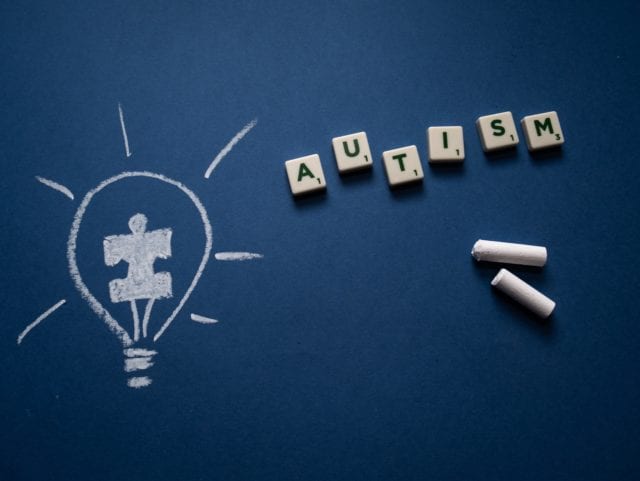How Autism Affects Cognition
Expressing emotions, talking to friends and family, and decision-making are all possible through cognitive skills. However, autism is a developmental disorder that interferes with the basic interactions in life. Socialization and all it entails is accomplished differently or not at all in those with autism. Continue reading to learn how autism affects cognition.

What is Autism?
Autism is a developmental disorder effecting social interaction, behavior, and communication. It is typically evident in early childhood. Symptoms of the disorder interfere with language. Those with autism struggle with conveying and understanding both emotions and gestures during social interaction. No two people present identically. While some are severely debilitated to the point they are non-verbal, others only have mild social deficits.
There are numerous types of autism spectrum disorder:
- Autistic Disorder—The most serious form with severe deficits in social development; portrays the “classic” characteristics of autism: avoidance of eye contact, repetitive behaviors, inability to communicate, and sensory sensitivities.
- Asperger’s syndrome—High functioning with normal intelligence and those with Asperger’s can navigate the world with minimal support
- Childhood Disintegrative Disorder—Children meet their milestones such as language, social function, and motor skills, but suddenly regress around age 3
- Pervasive Developmental Disorder Not Otherwise Specified—Has some of the criteria of autism
What is Cognition?
The term cognition refers to the processes of “thinking” or acquiring knowledge and understanding through the experience of the give senses. Cognitive skills are the skills necessary for the brain to acquire and utilize information. There are several cognitive skills: attention, memory, logic and reasoning, auditory and visual processing, and processing speed.
Research suggests autism impacts the thinking process in ways that do not pertain to social functioning.
How Autism Affects Cognition: Memory
Autism and memory have a complicated relationship. Those with autism have the potential for strong long-term memory. Studies reveal the average person recalls memories as early as ages 4 to 6 (Williams, et al., 2006). However, some on the spectrum remember before then. They also have a keen sense for detail by remembering colors, number sequences, and other minor details the neurotypical overlooks. This creates an almost photographic-like memory.
Working memory, particularly spatial working memory, is not nearly as developed. While verbal working memory is fully in-tact, children with autism displayed poor spatial working memory when recalling information pertaining to location and direction. For example, remembering where an object is located after it has been moved. A portion of the brain known as the prefrontal cortex is responsible for spatial information, which is impaired in autism.
How Autism Affects Cognition: Attention
Attention is the ability to focus concentration on specific information. When paying attention, some stimuli are ignored (e.g. background noise) and others are directly concentrated on. Children with autism do not pay attention to things that do not interest them. They struggle to ignore the sensory stimuli around them such as noise from a television or conversions.
Social deficits contribute to inattention. Many with autism have poor “facial identity discrimination” because they make less eye contract during social interaction (New et al., 2010). They view human faces as they would an inanimate object. This is because tasks that involve shared attention are effected the most.
How Autism Affects Cognition: Organization
Organization a system for tracking information to enhance future learning. It includes arranging material items pertaining to academia, systemizing mental thoughts and emotions, or even planning time. Organizing is not easy for those on the spectrum. In learning environments, teachers often have to implement strict routines to ensure their autistic student completes assigned tasks on time and keeps a tidy enough work area to be successful. It is beneficial to practice organization as a cognitive skill to improve the proper setting of goals and prioritizing tasks to reach said goals.
Some key tips to assist with organization are:
- Use visuals—Visuals include calendars, lists, and time-tables featuring images
- Color-coding—Prioritize tasks by order of importance using various colors
- Lists—Write down itinerary, assignments, and other pertinent information
- Technology—Set alarms through cell phones, timers, clocks, or record information via dictaphones
How Autism Affects Cognition: Sensory Processing
Sensory processing is the act of taking in information from the environment via the five senses: sight, touch, taste, smell, and hearing. Sensory processing allows us to navigate our body in the environment. Autistic individuals have heightened reactions to sensory stimuli. Their heightened awareness is partially why they tend to memorize detail.
The way sensory information is processed is different in autism. Depending on the severity, sensory stimuli may cause significant distress that can trigger aggressive, self-injurious behavior. Especially in younger children, it is important for parents to learn the specific triggers for behavior.
How Autism Affects Cognition: Emotional Processing
Emotional processing is assessing emotions from current environmental cues, prior knowledge, and language in social interactions. Both implicit and explicit emotional processing is challenging in autism. An immense breakdown in emotional processing occurs from the inability to read facial expressions, posture, gestures, and auditory cues like tone of voice. Interpreting the emotions of others is not as accurate for those on the spectrum. Some experts describe this as “emotional blindness” or lacking empathy because they cannot understand what people around them are feeling. Although they can interpret their own emotions, they struggle to express it.
Recent studies prove that the amygdala, a portion of the brain regulating emotional control, is smaller in those with autism. Additionally, the size of the amygdala is smaller in size in those with autism and anxiety than in only autism alone. This suggests anxiety contributes to poor emotional processing (Schumann, 2010).
How Autism Affects Cognition: Language and Communication
Problems with language and communication are autism’s defining features. Up to 40 percent of those with autism are non-verbal and others on the spectrum cannot understand verbal language, are delayed in developing language, or do not use gestures and voice inflections to communicate their point. According to Bal and colleagues, language development is delayed because they are less interested in interaction with people within the first year of life (2019).
For many autistic individuals, communication is mainly to request a need (e.g. food, etc.) or to protest. It is not unusual for them to repeat certain phrases or point to objects to express themselves to parents or caregivers. Very rarely do they communicate for social purposes. Parents and caregivers of children on the spectrum must model appropriate language to teach them how to respond.
How Autism Affects Cognition: Decision Making
Decision making entails logic and reasoning. In those with autism, logic drives their decision making process. The general population is prone to the framing effect—meaning decisions are based on how the information is delivered and are susceptible to bias. However, those on the spectrum prefer to obtain all of the information prior to making a final decision. They do not rely on emotion and intuition to make decisions.
The decision making process is complicated if they must speak with others or experience a change in routine.
Teaching Children with Autism
With its affect on cognition, autism impacts learning. Teaching children with autism begins with establishing a successful learning environment. Firstly, whether at home or in a classroom setting, the environment should have as few distractions as possible. Sensory stimuli is overwhelming, so cut back on background noise and elaborate visuals that do not pertain to the information trying to be taught.

Next, it is best to follow a routine. Consistency is crucial to maintaining a comfortable learning environment. Have a designated time to teach specific subjects, organize supplies, or break for meals. Do this same routine daily. While following a routine, give brief verbal instructions and write any directions down.
Lastly, since those with autism hyperfocus on subjects they are interested in, create lesson plans around that topic. This keeps them engaged. Successful learning with autism is possible with diligence and consistency!
References
Bal, V., Fok, M., Lord, C., Smith, I., Mirenda, P., Szatmari, P., Vaillancourt, T., Volden, J., Waddell, C., Zwaigenbaum, L., Duku, E., Elsabbagh, M., Georgiades, S., Ungar, W., & Zaidman-Zait, A. (2019). Predictors of longer‐term development of expressive language in two independent longitudinal cohorts of language‐delayed preschoolers with autism spectrum disorder. Journal of Child Psychology and Psychiatry, 61(7), 826-835. doi: 10.1111/jcpp.13117.
New, J. J., Schultz, R. T., Wolf, J., Niehaus, J. L., Klin, A., German, T. C., & Scholl, B. J. (2010). The scope of social attention deficits in autism: prioritized orienting to people and animals in static natural scenes. Neuropsychologia, 48(1), 51–59. https://doi.org/10.1016/j.neuropsychologia.2009.08.008
Schumann C.M. et al. J. Neurosci. 30, 4419-4427 (2010) PubMed
Williams, D.L., Goldstein, G., & Minshew, N.J. (2006). The Profile of Memory Function in Children With Autism. Neuropsychology, 20(1), 21–29. DOI: 10.1037/0894-4105.20.1.21
Cheyanne is currently studying psychology at North Greenville University. As an avid patient advocate living with Ehlers Danlos Syndrome, she is interested in the biological processes that connect physical illness and mental health. In her spare time, she enjoys immersing herself in a good book, creating for her Etsy shop, or writing for her own blog.